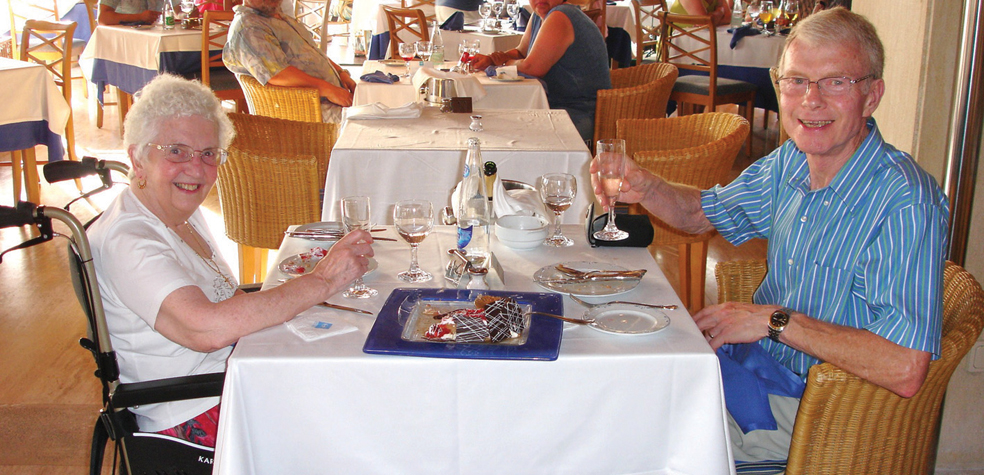Questions to ask before travelling

One of the most important things to do when booking your holiday is to ask questions, particularly if you have special requests or need to be 100% certain that your exact requirements are in place.
It might be useful to mentally map out your journey, from leaving home to arriving at your destination, considering all the potential challenges on the way. And then do a similar exercise for your daily routine when you’re away.
With these in mind, you can then really quiz the tour operator or travel agent. Why not write down your queries and the answers you’re given too, so you can compare different companies to find your perfect holiday.
Here is a form from ABTA (Association of British travel Agents) that might be very useful to have completed before talking to your travel agent or holiday company.
Transfers and transport
If you're going to the airport, do you need a specially adapted taxi? Will there be assistance from the car park to check-in and through to the plane? If you would like a wheelchair or buggy, the airline will need to know in advance.
Maps of many airports are now available on the internet, so you can easily find toilets, reserved seating and information points.
Perhaps you will want to know if you can keep your wheelchair until you get to the aircraft, the airline will decide this given the information you provide. If you can’t, then the airline must provide a suitable wheelchair for you. How about attaching a laminated photocopy of how to dismantle/assemble your wheelchair, so it can be handled properly?
Likewise with oxygen canisters, it’s as well to mention this when booking, most airlines need at least 7 days’ notice and there is usually a charge for carrying these.
If you have a medical condition that could affect your suitability to fly, get a certificate from your doctor to show you are well enough to travel.
Blind, partially-sighted or deaf passengers, particularly those travelling alone, should let their travel companies and airlines know so staff can provide immediate assistance should there be an emergency.
On arrival at your destination, you will need to ask about getting to your transfer through the airport, and how the transfer vehicle will accommodate your needs. If you are renting a car, and need a hands controlled car, this will certainly need to be requested well in advance and confirmed to you in writing.
Remember, you are entitled to certain levels of assistance by European law when you fly, if you are a person with reduced mobility (PRM).
At your destination
So what do you need in your accommodation, be it a hotel, cruise ship, self-catering cottage or log cabin? Consider asking about: outside and inside ramps for wheelchairs, lifts, a suitably adapted room, with flat floor shower, grab rails, bed and light switches at the correct height, notices in Braille and induction loops.
Some travellers prefer to hire equipment at their destination, if this is you, be very sure you’ve checked it is available, the cost and if it can be delivered to where you are staying.
It may also be useful to find out about adapted leisure facilities such as swimming pool lifts. If you’re staying in a resort, any maps of the town or hotel will be useful, local tourist information websites usually have a wealth of information.
If you require a special diet, do check that this can be provided before booking.
And it can be useful to know just how far a main hospital is from where you’re staying, just in case.
Of course, if you are out and about on organised excursions, you’ll want to ask questions about the transport: are ramps or hydraulic lifts available? How many steps are involved when visiting attractions? Will suitable toilets will be available on the trip? And can equipment, such as mobility aids, can be taken along?
And finally...
Once you’re comfortable that all your questions are answered satisfactorily, and you are making a reservation, it’s really advisable to get all your requests written onto the booking form and confirmed back to you, so everyone is absolutely clear about what you want.
If you have any further queries, please get in touch with us.
Note: The information given is by way of suggestion only. It is correct, to the best of our knowledge, but we cannot be held responsible for any errors or omissions on our part.
For more information call the Age UK Advice Line on 0800 169 65 65 (8am-7pm, 365 days a year).
